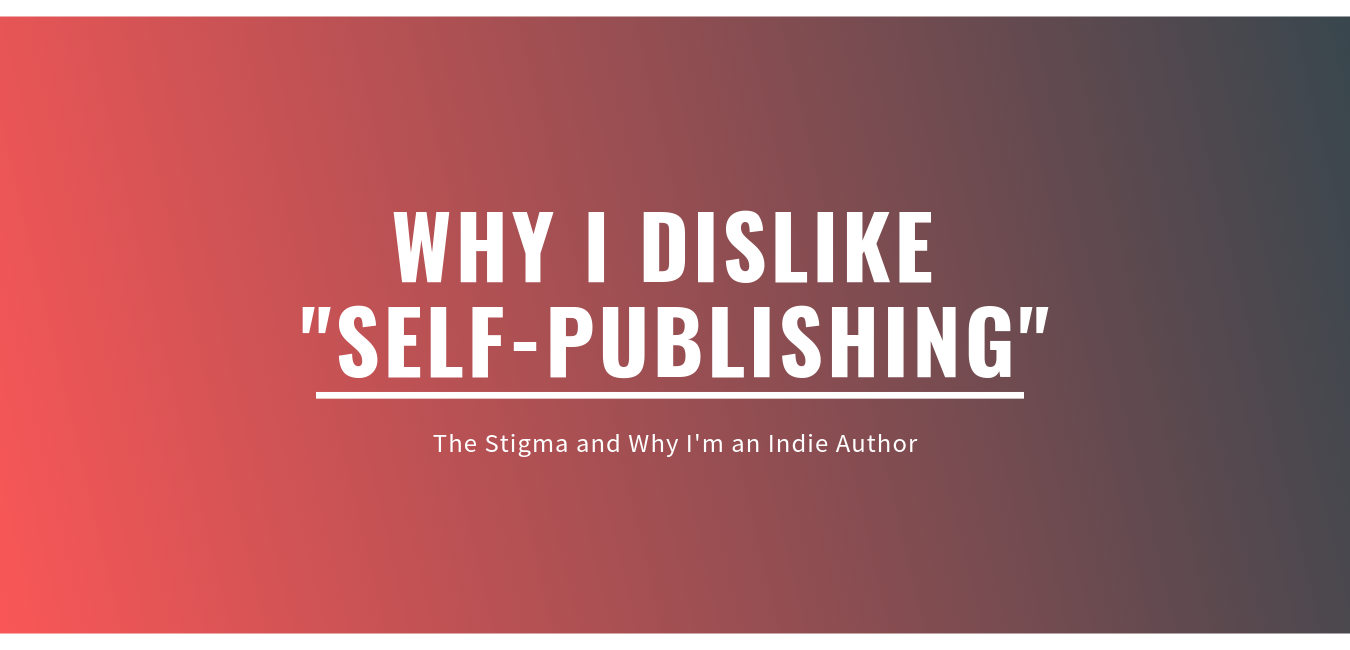When people talk to me about my book, one of the first questions they usually ask is, “Who is publishing it?” When I tell them that I am independently publishing it, I get one of three reactions.
1. “That’s awesome, good for you!” They are genuinely excited and want to know more. They understand indie publishing, at least to some degree.
2. “Huh, that’s neat.” They are interested and happy for me, but they don’t really understand independent publishing. There’s absolutely nothing wrong with that.
3. “Oh, like self-publishing?” I’m sure you can imagine the tone that comes with this reaction. I don’t hold any ill will towards people who react like this, especially because they are normally still very supportive.
My issue with the third type of reaction is that it demonstrates the stigma that surrounds independent publishing. And that’s what I want to talk about today.
First things first, I make a conscious effort to avoid the term “self-publishing” (or any derivation of it). I prefer, as you may have noticed, to use “independent publishing,” and have written about the difference before. If you want a detailed breakdown of when independent publishing replaced self-publishing, check out my other blog.
Put simply, self-publishing is a term from when authors would go to vanity presses to have a handful of their books printed. There were some shady tactics on both sides of those transactions, and the writing was commonly seen as sub-par.
Independent publishing, on the other hand, is more akin to entrepreneurship than it is to self-publishing. Independent authors have to build their brand, network, rule the social media game, be proficient marketers, produce polished works and be good writers to boot. There is a heck of a lot that goes into being an indie author.
So when someone asks me if I am self-publishing, my answer is no. There are indie authors who use the term self-published, and that’s okay if they are okay with it. Own who you are and what you do. Just don’t be ashamed of it.
There is another reaction that I get when I talk to people about independently publishing my book.
“Are you eventually going to go with a publishing house?”
If you had asked me that when I was younger, the answer would be a resounding yes. But nowadays, I’m not so sure.
And it isn’t just because indie authors are outselling everyone else with their e-books, nor is it because indie authors make more money per unit sold. I can all but guarantee that I would sell more copies of Archangel if I had the power of Tor behind me.
But there is something empowering about being an indie creator—whether that be an author, a singer, a vlogger or blogger, or any other creator you might imagine. There is something amazing about creating your own fan base, about deciding how your book is created, about being in control of your own destiny.
Take a look at the cover of Archangel. That is a combination of my vision and another independent artist’s talent and creativity. I am so proud of it and couldn’t imagine being told by a publishing company what the front of my book should look like.
Here’s another way of looking at it: you wouldn’t ask an entrepreneur if they started their own business because they weren’t good enough to get a job, would you? A true independent author takes the same principles and mindset of an entrepreneur and applies it to their own brand.
I’m not saying that people who have a negative opinion of indie authors are terrible. I would be lying if I said there wasn’t a time when I thought that success in writing meant querying agents, querying publishers, and having my book on the shelves of Chapters and Barnes & Noble.
Sometimes, that form of success sounds easier! But I absolutely love being an independent author, and I hope you love being a part of my journey.


